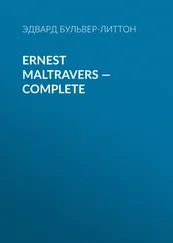Эдвард Бульвер-Литтон - Eugene Aram — Complete
Здесь есть возможность читать онлайн «Эдвард Бульвер-Литтон - Eugene Aram — Complete» — ознакомительный отрывок электронной книги совершенно бесплатно, а после прочтения отрывка купить полную версию. В некоторых случаях можно слушать аудио, скачать через торрент в формате fb2 и присутствует краткое содержание. Жанр: foreign_prose, literature_19, Европейская старинная литература, foreign_antique, на английском языке. Описание произведения, (предисловие) а так же отзывы посетителей доступны на портале библиотеки ЛибКат.
- Название:Eugene Aram — Complete
- Автор:
- Жанр:
- Год:неизвестен
- ISBN:нет данных
- Рейтинг книги:4 / 5. Голосов: 1
-
Избранное:Добавить в избранное
- Отзывы:
-
Ваша оценка:
- 80
- 1
- 2
- 3
- 4
- 5
Eugene Aram — Complete: краткое содержание, описание и аннотация
Предлагаем к чтению аннотацию, описание, краткое содержание или предисловие (зависит от того, что написал сам автор книги «Eugene Aram — Complete»). Если вы не нашли необходимую информацию о книге — напишите в комментариях, мы постараемся отыскать её.
Eugene Aram — Complete — читать онлайн ознакомительный отрывок
Ниже представлен текст книги, разбитый по страницам. Система сохранения места последней прочитанной страницы, позволяет с удобством читать онлайн бесплатно книгу «Eugene Aram — Complete», без необходимости каждый раз заново искать на чём Вы остановились. Поставьте закладку, и сможете в любой момент перейти на страницу, на которой закончили чтение.
Интервал:
Закладка:
“She is not reserved in regard to her past life,” said Lester. “She is too happy to seize the attention of any one to whom she can pour forth her dark and angry confidence. She saw her husband, who was afterwards dismissed the service, a strong, powerful man, a giant of his tribe, pine and waste, inch by inch, from mere physical want, and at last literally die from hunger. It happened that they had settled in the country in which her husband was born, and in that county, those frequent famines which are the scourge of Ireland were for two years especially severe. You may note, that the old woman has a strong vein of coarse eloquence at her command, perhaps acquired in (for it partakes of the natural character of) the country in which she lived so long; and it would literally thrill you with horror to hear her descriptions of the misery and destitution that she witnessed, and amidst which her husband breathed his last. Out of four children, not one survives. One, an infant, died within a week of the father; two sons were executed, one at the age of sixteen, one a year older, for robbery committed under aggravated circumstances; and the fourth, a daughter, died in the hospitals of London. The old woman became a wanderer and a vagrant, and was at length passed to her native parish, where she has since dwelt. These are the misfortunes which have turned her blood to gall; and these are the causes which fill her with so bitter a hatred against those whom wealth has preserved from sharing or witnessing a fate similar to hers.”
“Oh!” said Aram, in a low, but deep tone, “when—when will these hideous disparities be banished from the world? How many noble natures—how many glorious hopes—how much of the seraph’s intellect, have been crushed into the mire, or blasted into guilt, by the mere force of physical want? What are the temptations of the rich to those of the poor? Yet see how lenient we are to the crimes of the one,—how relentless to those of the other! It is a bad world; it makes a man’s heart sick to look around him. The consciousness of how little individual genius can do to relieve the mass, grinds out, as with a stone, all that is generous in ambition; and to aspire from the level of life is but to be more graspingly selfish.”
“Can legislators, or the moralists that instruct legislators, do so little, then, towards universal good?” said Lester, doubtingly.
“Why? what can they do but forward civilization? And what is civilization, but an increase of human disparities? The more the luxury of the few, the more startling the wants, and the more galling the sense, of poverty. Even the dreams of the philanthropist only tend towards equality; and where is equality to be found, but in the state of the savage? No; I thought otherwise once; but I now regard the vast lazar-house around us without hope of relief:—Death is the sole Physician!”
“Ah, no!” said the high-souled Madeline, eagerly; “do not take away from us the best feeling and the highest desire we can cherish. How poor, even in this beautiful world, with the warm sun and fresh air about us, that alone are sufficient to make us glad, would be life, if we could not make the happiness of others!”
Aram looked at the beautiful speaker with a soft and half-mournful smile. There is one very peculiar pleasure that we feel as we grow older,—it is to see embodied in another and a more lovely shape the thoughts and sentiments we once nursed ourselves; it is as if we viewed before us the incarnation of our own youth; and it is no wonder that we are warmed towards the object, that thus seems the living apparition of all that was brightest in ourselves! It was with this sentiment that Aram now gazed on Madeline. She felt the gaze, and her heart beat delightedly, but she sunk at once into a silence, which she did not break during the rest of their walk.
“I do not say,” said Aram, after a pause, “that we are not able to make the happiness of those immediately around us. I speak only of what we can effect for the mass. And it is a deadening thought to mental ambition, that the circle of happiness we can create is formed more by our moral than our mental qualities. A warm heart, though accompanied but by a mediocre understanding, is even more likely to promote the happiness of those around, than are the absorbed and abstract, though kindly powers of a more elevated genius; but (observing Lester about to interrupt him), let us turn from this topic,—let us turn from man’s weakness to the glories of the mother-nature, from which he sprung.”
And kindling, as he ever did, the moment he approached a subject so dear to his studies, Aram now spoke of the stars, which began to sparkle forth,—of the vast, illimitable career which recent science had opened to the imagination,—and of the old, bewildering, yet eloquent theories, which from age to age had at once misled and elevated the conjecture of past sages. All this was a theme which his listeners loved to listen to, and Madeline not the least. Youth, beauty, pomp, what are these, in point of attraction, to a woman’s heart, when compared to eloquence?—the magic of the tongue is the most dangerous of all spells!
CHAPTER VIII.
THE PRIVILEGE OF GENIUS.—LESTER’S SATISFACTION AT THE ASPECT
OF EVENTS.—HIS CONVERSATION WITH WALTER.—A DISCOVERY
“Alc.—I am for Lidian:
This accident no doubt will draw him from his hermit’s life!
“Lis.—Spare my grief, and apprehend
What I should speak.”
In the course of the various conversations our family of Grassdale enjoyed with their singular neighbour, it appeared that his knowledge had not been confined to the closet; at times, he dropped remarks which shewed that he had been much among cities, and travelled with the design, or at least with the vigilance, of the observer; but he did not love to be drawn into any detailed accounts of what he had seen, or whither he had been; an habitual though a gentle reserve, kept watch over the past—not indeed that character of reserve which excites the doubt, but which inspires the interest. His most gloomy moods were rather abrupt and fitful than morose, and his usual bearing was calm, soft, and even tender.
There is a certain charm about great superiority of intellect, that winds into deep affections which a much more constant and even amiability of manners in lesser men, often fails to reach. Genius makes many enemies, but it makes sure friends—friends who forgive much, who endure long, who exact little; they partake of the character of disciples as well as friends. There lingers about the human heart a strong inclination to look upward—to revere: in this inclination lies the source of religion, of loyalty, and also of the worship and immortality which are rendered so cheerfully to the great of old. And in truth, it is a divine pleasure to admire! admiration seems in some measure to appropriate to ourselves the qualities it honours in others. We wed,—we root ourselves to the natures we so love to contemplate, and their life grows a part of our own. Thus, when a great man, who has engrossed our thoughts, our conjectures, our homage, dies, a gap seems suddenly left in the world; a wheel in the mechanism of our own being appears abruptly stilled; a portion of ourselves, and not our worst portion, for how many pure, high, generous sentiments it contains, dies with him! Yes! it is this love, so rare, so exalted, and so denied to all ordinary men, which is the especial privilege of greatness, whether that greatness be shewn in wisdom, in enterprise, in virtue, or even, till the world learns better, in the more daring and lofty order of crime. A Socrates may claim it to-day—a Napoleon to-morrow; nay, a brigand chief, illustrious in the circle in which he lives, may call it forth no less powerfully than the generous failings of a Byron, or the sublime excellence of the greater Milton.
Читать дальшеИнтервал:
Закладка:
Похожие книги на «Eugene Aram — Complete»
Представляем Вашему вниманию похожие книги на «Eugene Aram — Complete» списком для выбора. Мы отобрали схожую по названию и смыслу литературу в надежде предоставить читателям больше вариантов отыскать новые, интересные, ещё непрочитанные произведения.
Обсуждение, отзывы о книге «Eugene Aram — Complete» и просто собственные мнения читателей. Оставьте ваши комментарии, напишите, что Вы думаете о произведении, его смысле или главных героях. Укажите что конкретно понравилось, а что нет, и почему Вы так считаете.












